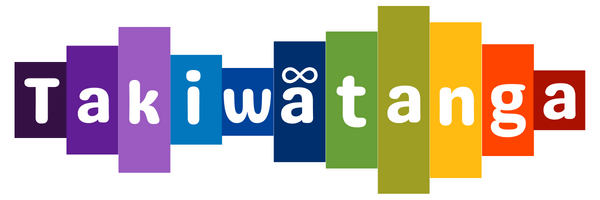Takiwātanga with Lloyd I AM
My Own time and space | Love not Cure
S01 E08: Sensory processing Day 3
UNEDITED Transcription
Managing behaviors – Sensory processing day 3
This is Lloyd I AM and you are listening to Takiwatanga, love not cure, exploring autism one strength at a time.
Hello everyone! So here we are!
It’s day 3 of the sensory training held at Hutt Hospital..
This day is all about behaviors and for this session we have a clinical psychologist in the room.
It’s a little tricky really going to these sessions especially wearing masks during the training. I know we have to think about the safety of all participants but training wise it’s hard to hear the person speaking and second you can not see the whole facial expressions. And usually, seeing the person speak during sessions will help a lot in learning. But regardless, here’s is my take.
Behaviors serves as a function. Why a person is doing such a behavior is based or has an influence on the intended outcome.
The best example that I can think of right now is tantrum. It is a type of behavior especially for kids and usually this may happen if the child wants something and then doesn’t get it. I remember a time when I was watching on the tv and then my son came to me, giving me that cue that he wanted to be carried. I was busy watching and intentionally ignored him. What happened next is that he just suddenly started to cry but when I looked at him there were no tears but it sounded like he’s being serious about it… anyway I ignored him the first time but he did it again. So now he looks really serious and tears have started to flow from his eyes. I thought, ooh that’s being serious now, I wonder what will happen if I ignore you again.
So I did it again, I just continued watching. He started to cry like hell. He cried and cried even though hugging him while seated didn’t work. So i thought this is getting serious, I am going to have to carry him as this may lead to a melt down. Though he sounded like he was at the brink it.
What happened next is I stood up and carried him. I was surprised to see that instantaneously he stopped crying right after being held up. He just started to sing as well. Then after a few minutes he asked to be brought down. So I brought him down and just walked away from me… Interesting right? Yes, like nothing happened.
Just one example I can think of right off the bat and may not be the best example but really there are a lot of behaviours we may have experienced as a result of an experience or sensory perception. But if you come to think of it, any sudden change in behaviour of a person may have been triggered by something. Meaning, is a result of external or internal forces. It could be around the type of information received by our senses. It may end up having a person feeling good or bad.
Behaviors are reinforced by the things you do in front of another person say you child. As the saying goes, children learn a lot by seeing what you do rather than by telling them what to do. Whatever you do reinforces the behaviours you either want or don’t want. In short, what you do moticates the other person to act on it positively or negatively.
One technique that can help reinforce a behaviour is by giving positive rewards. And rewards are different from bribes.
A reward is something like asking a child to do something in exchange of maybe a play date. Let’s say you are in a dental appointment and your child is becoming more impatient and anxious. What you can do in that kind of situation is you can say, you know what, if you can wait patiently for your turn with the dentist, I will bring you to the zoo during the weekends. Saying your child loves going to the zoo. And then after the appointment you can say, you’ve done well today, good job on that. BAsically it is reinforcing what the person can do vs what they can not do. In that sense
On the other hand this is how a bribe will be. Same scenario with the dentist. This is what happens, Let’s go to the zoo right now and then later you have to be patient when at the dentist ok?
In the end, rewards are all about what motivates a person to have positive behaviours.
It was emphasized that punishment doesn’t help achieve what you want in any given situation and for most of the time this is a useless strategy so don’t fall for this. Unless it is a super serious incident that may require this type of act, then do not use this.
As parents, usually a time out is a form of punishment that we can easily think of especially when we are in that given situation where a child have done something wrong.
We are familiar with time out but really what a time out should be is you don’t want someone to be excluded but rather change the concept of time out by pulling the person away from the activity that is making the person behave negatively.
So how do we change behaviours? Just be careful with the behaviour we are replacing especially for kids, Here is what I mean.
When a person is also becoming fidgety with a fidget spinner and because you wanted the person to stop being fidgety and you take the fidget spinner away, they will find another behaviour. There is this “Hierarchy of behaviour” – take awaywhat is in someone’s hands and that person will replace it with a body behaviour.
Emotional elements usually have a bigger impact when changing a behaviour because it can be modeled. As I mentioned, children learned a lot by seeing what you do and not by what you say they should do.
Say you are going for a school visit in a transition from kindy to primary. You keep on saying to your child that everything will be fine in primary by everytime you go for a visit, you are acting more anxious because the school is so noisy and there are lots of kids. Your child will take this instance to confirm that the school is really noisy and I won’t be able to keep up.
Here’s another example that may change the person’s behaviour that I believe may apply to anyone. If we are expecting for something to happen but it didn’t. What behaviour do you usually do, for some they may exhibit anxiety, some may exhibit sadness right.
So what can we do to alleviate that? We need to set expectations that if this will not happen this is what we are going to do. We can use pictures or videos too as social stories.
Let’s say you are heading for school and catching a bus but you have missed it, oh we have missed the bus, this is what we are going to do, we are going to wait for the next one to come.
Social stories strategy is one of the best strategies because the person can see the next thing to happen and they can re affirm that this is going to happen next.
By the way, in the self development world there is this pattern interruption technique to change the behaviour of a person and I asked if this would work on a person on the autism spectrum, The response I got is not usually. Usually for special cases like this it will be difficult to apply it, not that it won’t work, it is a case to case basis still. If the person is already melting down, pattern interruption is not a good idea at that point.
These are the key points I got. I was actually anxious during this session because cases of covid in NZ are rising as of this recording so I may have missed out enjoying and learning much in this session. So it is a bit short and sweet episode for us.
As long as we have learned something right? going to sessions like this and learning even just one strategy is all worth it so in the end, we are still a winner right?
Ok for the next episode, we will continue with the training discussion. This is for the last day or 4th day of the training. Catch you later and thanks for your time.
Every tangata whaiTakiwātanga or person with autism is different. If you fail with one strategy, don’t stop, keep moving forward. Always remember that for every failure encounter is one step closer to your success.
Thanks for tuning in, until next time…
Me mutu te Whakawa Haere, Let’s stop judging others
Me Mahi Tahi Tatou, Let’s all work together,
Kia Maia – Kia Kaha, Be brave and Be strong




0 Comments